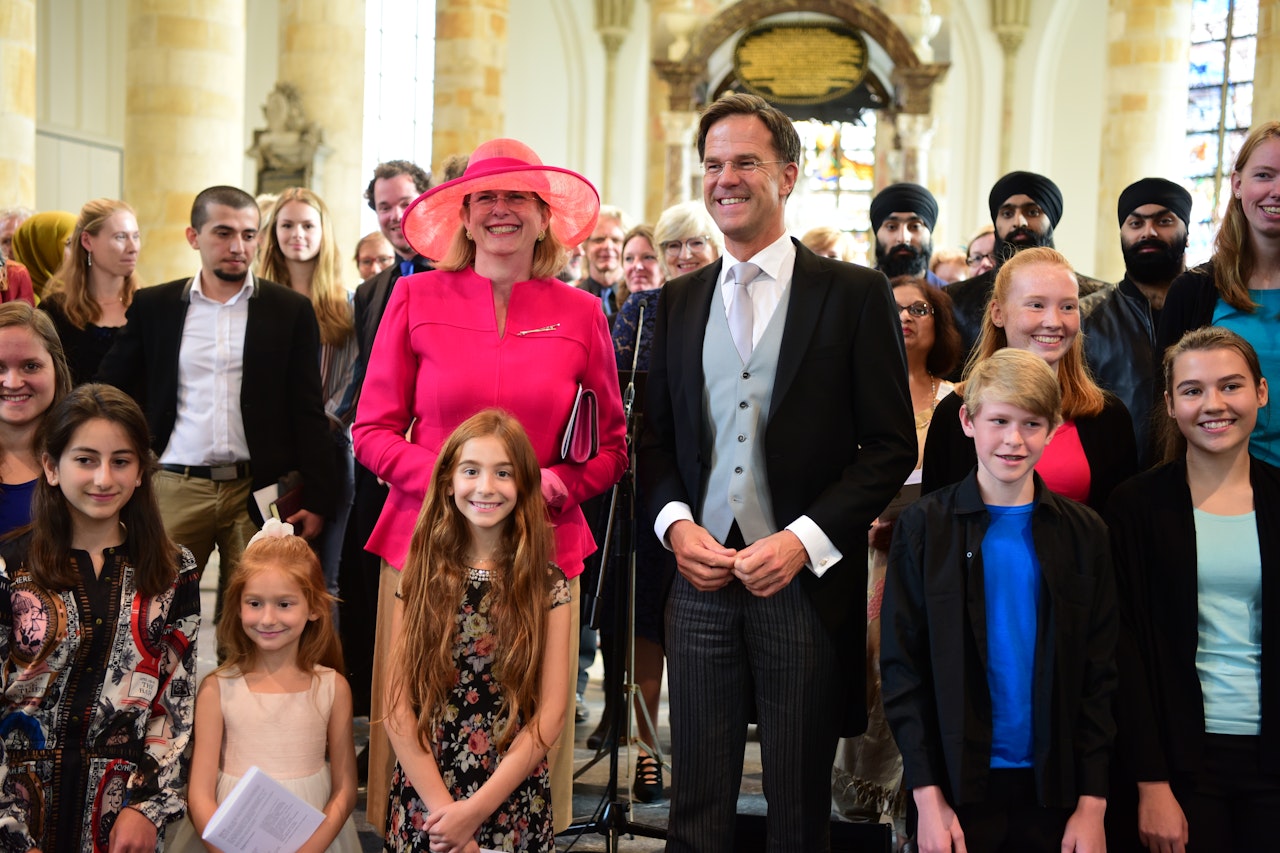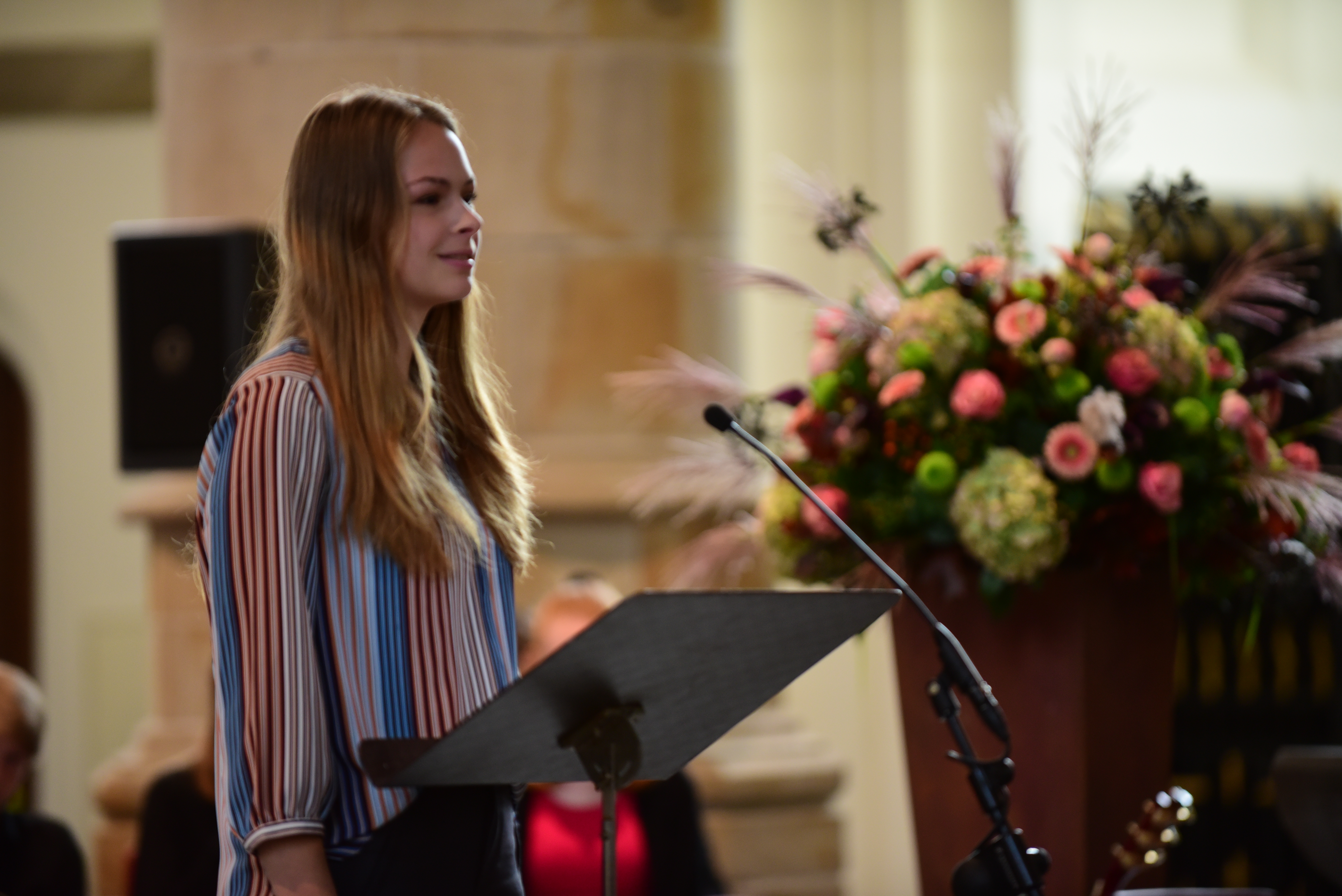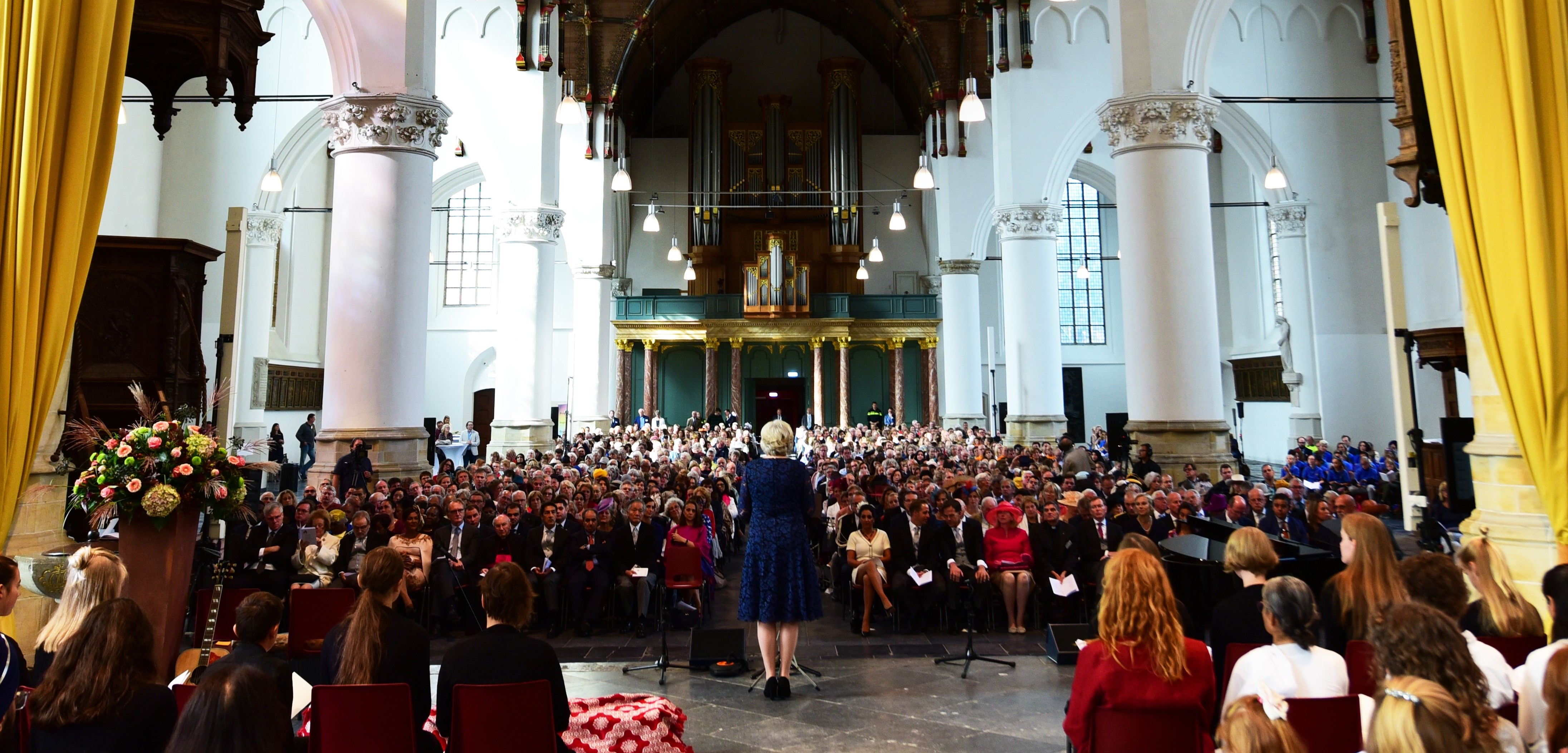Dutch parliamentary year begins with interfaith gathering, gives voice to youth
The prime minister, members of parliament, mayor of The Hague, and faith communities mark the opening of the parliamentary year by reflecting on a vision for the future.

The prime minister, members of parliament, mayor of The Hague, and faith communities mark the opening of the parliamentary year by reflecting on a vision for the future.

THE HAGUE, Netherlands — The Prince’s Day opening celebrations in the Netherlands, marking the new parliamentary year and held annually by faith communities, this year provided a platform for youth to contribute to the national discourse on the environment.
The event, attended by the country’s prime minister, members of parliament, the mayor of The Hague, ambassadors, and faith communities, provided an occasion for over 1,000 participants to reflect on the future of their country.
“Whoever looks in the eyes of a child sees that his or her future is important,” said Ad van der Helm, chair of the program. “Our decisions, or our lack of decisions now, will affect their environment. If we care now, they can live.”
The faith communities of the country, he continued, “wish to connect the voices of the youth and the voices of the future to the voices of those who bear responsibility at this time. All generations, all layers of society, all groups, languages, and cultures living in our country, share in the responsibility for this earth, our world.”

Namara van Bekkum, a 16-year-old youth representing the Dutch Baha’i community, opened the main address for the event with a passage from ‘Abdu’l-Baha’s First Tablet to The Hague, written nearly a century ago in the aftermath of World War I to a peace organization based in the city: “Until the minds of men become united, no important matter can be accomplished.”
Her comments were part of a program that stimulated profound reflection through readings of sacred texts, moments of silence, musical performances, and remarks by additional presenters.
Ms. van Bekkum underscored the importance of recognizing the spiritual dimensions of human identity. “How can our rapidly growing and developing world population live in harmony with the earth and its limited natural resources? We simply consume too much of what is produced in the wrong manner,” Ms. van Bekkum said in her speech. “A new consciousness is needed in how we human beings interact with the natural world. We need to pay attention to those spiritual characteristics that are compatible with the oneness of humanity and harmony with nature, for example fairness, honesty, love for the earth and human beings, generosity, and detachment from material things.”
In preparing her presentation, Ms. van Bekkum drew on her experiences with community building endeavors. “We have many conversations with people where I live on topics like justice and unity. Many see that this is what we need right now,” she says. “And everywhere in the world, people—youth, kids, and adults—are having more conversations about the importance of unity in climate change.”

Marga Martens, chair of the event’s organizing committee and a representative of the Netherlands’ Baha’i community, explains that “this year’s event was the first time a youth gave the main speech. That was an intentional choice by the committee to give voice to the country’s young people.”
The gathering is the outcome of close and unified collaboration among religious communities in the Netherlands. “We don’t see each other as separate groups presenting their own piece. We see each other as one community,” Ms. Martens said.